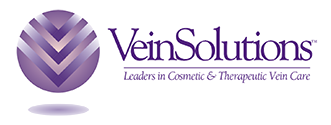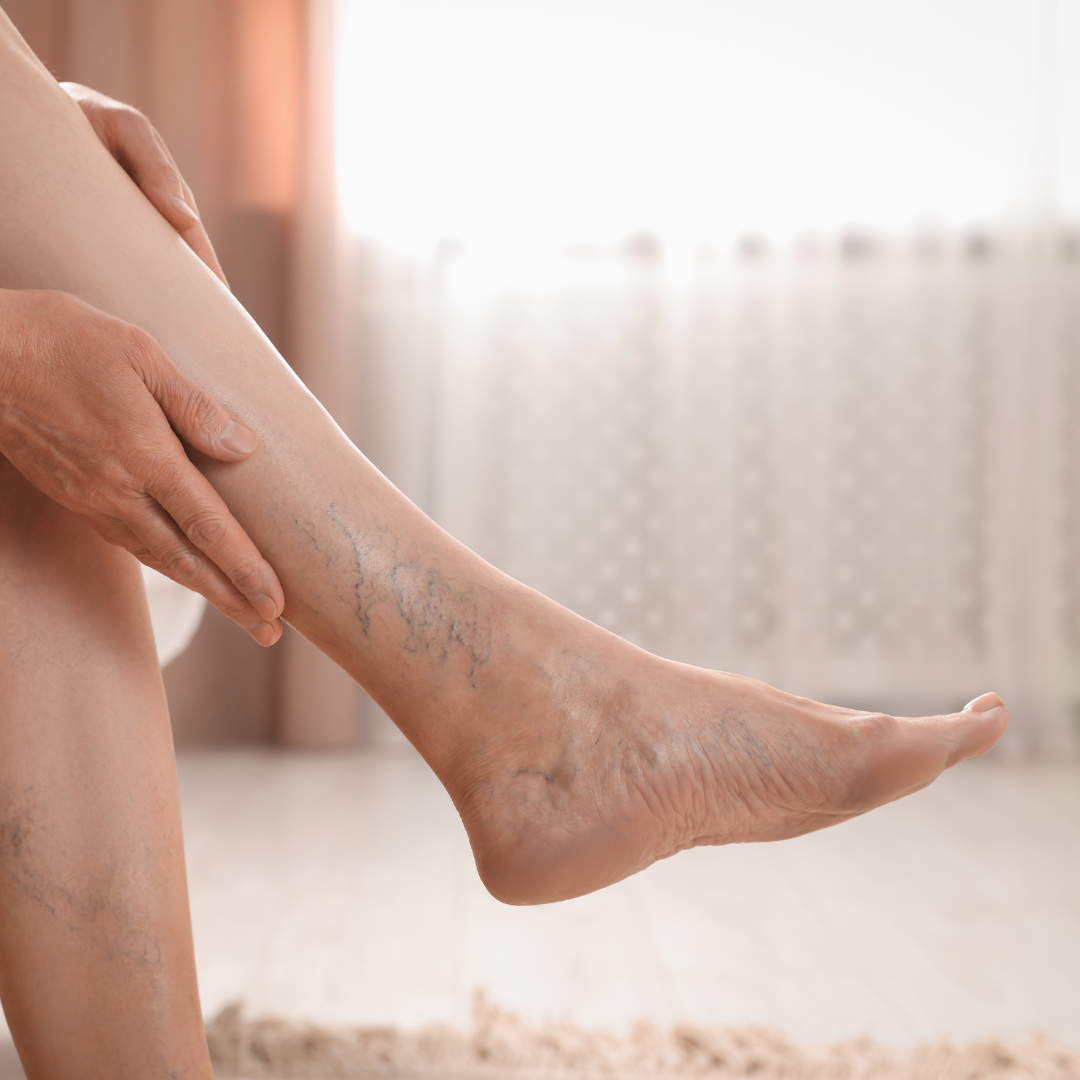If you’re one of the millions of Americans living with varicose veins, you know they’re…
What causes spider veins?
Spider veins are the slimmer, spindlier counterpart to varicose veins. They are both a form of venous insufficiency, something that more than 40% of people will develop at some point in their lifetime.
Like varicose veins, spider veins are abnormal vein structures that form under the skin and most typically on the legs.
They often appear thin and wispy in branch or spider-like configurations colored blue, red or purple. Spider veins may be painless or come with common symptoms such as swelling, throbbing, or a burning/itching sensation on the skin where they are located.
What causes spider veins?
Spider veins occur from poorly functioning vein valves that are either weak or damaged. As the blood flowing through the veins has trouble pumping properly towards the heart, it tends to pool in dark formations instead lower in the body resulting in the spider veins that you see. A variety of factors can lead to spider veins including:
- Heredity
- Obesity
- Birth control pills, or other hormonal changes such as pregnancy and menopause
- A history of blood clots
- Activities or a profession with prolonged standing
Fortunately, spider veins are something that our team of board-certified vascular surgeons are very familiar with.
When should you see a doctor for spider veins?
If spider veins are causing you any discomfort such as severe swelling, a rash or sudden discoloration on your skin, or you have trouble performing regular physical tasks, it’s time to seek help. It may also be time to visit with one of our vein specialists if the appearance of your spider veins is bothering you. Our vein specialists can help minimize their appearance and improve the look and overall feel of your legs.
How are spider veins treated?
Spider veins are best treated early on or as soon as you notice them. One of the most common and effective therapies we use to treat spider veins is sclerotherapy, which is a minimally-invasive procedure using a solution injection to dissolve the damaged veins. It is conveniently performed in our office with minimal pain and virtually zero down-time.
A few ways that you can help prevent spider veins is to improve circulation by exercising regularly, eating well, and wearing compression stockings.
Please contact us here for a consultation with one of our specialists to help you feel and look your best, or call 512.452.VEIN (8346) in Austin, or 512.501.4287 for Georgetown.



